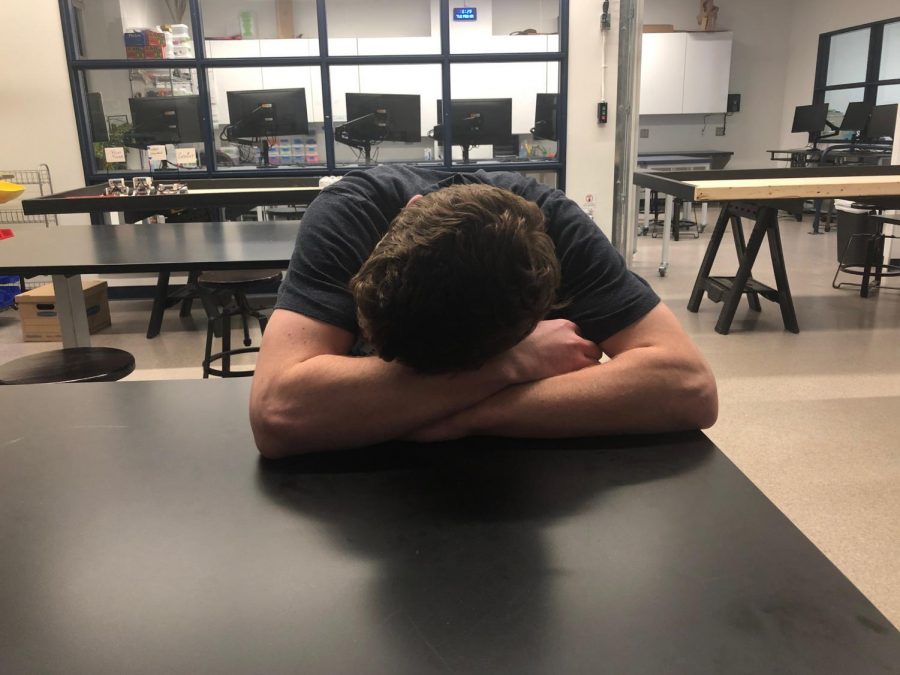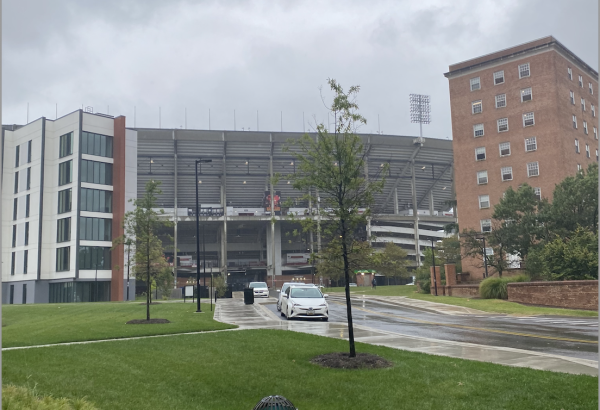School should start later
According to the National Sleep Foundation, 28 percent of teenagers have fallen asleep during school hours.
February 5, 2019
Earlier this week I was sitting in my Jewish History class, tired, two periods before lunch, thinking about basketball practice later that day and wondering how I would possibly be able to do all of my homework that evening, given how exhausted I already was.
I had only woken up about four hours before, but was already fatigued. I was having an incredibly difficult time focusing in class, and my exhaustion increased over the course of the day to the point that when I finally got around to doing my homework, it was of poor quality because I could simply not focus.
Many students are constantly in my same position, and this problem could be solved by CESJDS pushing back its daily start time. The start time of JDS school days should be pushed back to a later time for many reasons.
First, the school should push back its start time due to exhaustion, which is a huge problem for many students. Teenagers need between nine and nine and a half hours of sleep every single night, according to Nationwide Children’s Hospital. Think: Do you ever get that much sleep, or anything close to it? Chances are that you do not. In fact, the average teenager only gets between seven and seven and one-fourth hours of sleep every night, according to the Nationwide Children’s Hospital.
Exhaustion is also unsafe for students who drive to school. Crash rates fell by 16.5 percent in the two years after a school district pushed back their start times by an hour, compared to the two years before, according to a study by the Journal of Clinical Sleep Medicine. Studies have also linked lack of sleep to drug and alcohol abuse and higher suicide rates.
Secondly, studies have proven that when students get more sleep, their test scores go up. In one study, lower performing students made the most progress in their learning development when they had adequate sleep.
A National Sleep Foundation poll reported that 28 percent of teenagers have fallen asleep in class at least once due to lack of sleep. Being aware and paying attention in class is a crucial aspect of school. Shortening school days would result in higher functioning students, higher quality work and less exhaustion. Negative effects of sleep deprivation also include declines in mood, attention, memory, behavior and executive function.
One solution to the problem of exhaustion could be removing Zman Kodesh from the JDS schedule. Students would have an extra half hour in the morning to sleep, and anyone who wished to pray could have time before school to do so.
It would truly be beneficial to shorten school days. Better academic results would be a byproduct of shortening school days, along with less exhaustion, less stress and more exercise and free time. JDS should consider shortening school days because the results would be surprisingly positive.


















